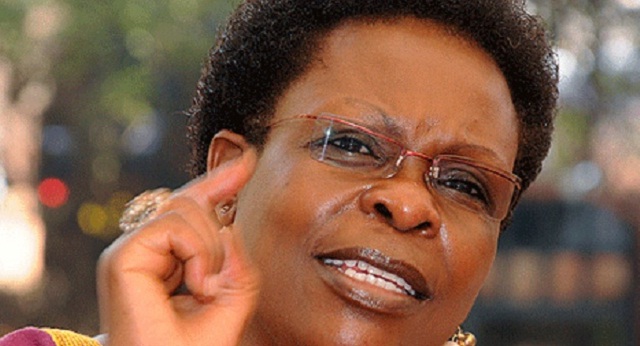
IGG KAMYA: Africa loses approximately $140 billion per year to corruption. Of that, $2.7 billion, or about 10 trillion shillings, is lost from Uganda annually.
Kampala, Uganda | THE INDEPENDENT | Inspector General of Government (IGG) Beti Kamya Turwomwe on Friday urged Ugandans to actively report suspicious wealth and corrupt syndicates, calling for a “people’s war” against graft on Africa Anti-Corruption Day.
Speaking at the Media Centre in Kampala, Kamya noted that July 11, 2025, marked 22 years since the African Union adopted its Convention on Preventing and Combating Corruption. She lamented that Africa, and Uganda in particular, is far from eliminating the vice.
“Africa loses approximately $140 billion per year to corruption,” Kamya said. “Of that, $2.7 billion, or about 10 trillion shillings, is lost from Uganda annually.”
She highlighted the potential impact of these lost funds, stating that if Uganda could save 10 trillion shillings, each of the nation’s 10,000 parishes could receive 1 billion shillings per year through the Parish Development Model. This, she added, would amount to about 2 million shillings per person annually for every Ugandan.
Kamya underscored Africa’s paradox, noting its vast resources—including 40% of the world’s gold reserves, 90% of its platinum and chromium, and 65% of its arable land—yet its status as the poorest continent. Uganda alone boasts 50% of the world’s mountain gorillas and 15% of its bird species, she said, attributing persistent poverty largely to corruption.
While acknowledging progress in countries like Seychelles (with a Corruption Perception Index of 72%) and Rwanda (57%), Kamya stated Uganda’s CPI stands at 27%.
— Beti Kamya Turwomwe (@IGGBetiKamya) July 12, 2025
Together, we can redignify our continent! All we have to do is to get rid of corruption. #ExposeCorruption #AACD2025 pic.twitter.com/bV6Fbcrb70
— IGG (@IGGUganda) July 11, 2025
The IGG detailed efforts by her office, including the establishment of 16 regional offices. Between January and December 2024, the Inspectorate of Government investigated and concluded 2,218 corruption cases. Administrative action was taken against 1,204 public officers in ministries, departments, agencies and local governments, leading to interdiction or job loss.
Financial recoveries were significant, with 13.3 billion shillings recommended to be paid to persons due to the IG’s intervention, and an additional 3.3 billion shillings recommended from the Inspectorate of Government Boards. Kamya reported that 16 public officers were recommended for prosecution at the Anti-Corruption Division, and 37 at the Leadership Code Tribunal. The IG achieved a 94.7% conviction rate at these courts.
“In one year, we recovered a total of nearly 7 billion shillings from the proceeds of corruption,” Kamya said, adding that more recoveries were in process. The IG also inspected more than 1,200 government projects and conducted 53 spot checks.
Kamya stressed the need for a mindset change among citizens, arguing that many condone or even glorify corruption. “When someone becomes rich quickly, they are glorified,” she said. “When a public officer becomes very rich and we try to take them to court… it is the very public that comes out to fight for that person.”

She urged the public to challenge this norm. “The mindset should be, ‘Please explain to us how you acquired that wealth,'” Kamya said.
The IGG made a direct appeal for public assistance in identifying ill-gotten wealth. “We have received intelligence reports that most of the high-rise apartments in the city suburbs belong to public officials,” she stated. “We want owners of these structures to explain how they acquired them.”
Kamya emphasized that the public, particularly neighbors, are privy to the lifestyles of public officers and are best positioned to report suspicious acquisitions. She also called on low and middle-rank public officers to expose “syndicated corruption” within government, as they often know the channels of illicit activities.
“We implore all citizens to hold their leaders accountable by questioning the source of wealth from which they acquire multi-billion properties when their income cannot justify it,” Kamya concluded, applauding those who have fearlessly reported corruption. “This is a patriotic gesture that all of us must embrace if we wish to see a corruption-free Uganda and a corruption-free Africa.”
 The Independent Uganda: You get the Truth we Pay the Price
The Independent Uganda: You get the Truth we Pay the Price





